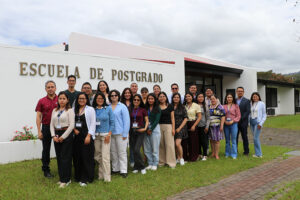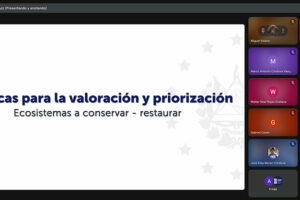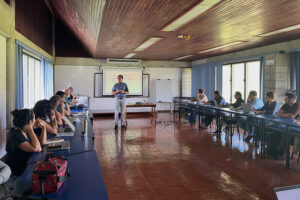Knowledge Management and Regional Cooperation: CATIE participates in monitoring of the KoLFACI COFFEE Project and the Latin American Coffee Symposium in El Salvador
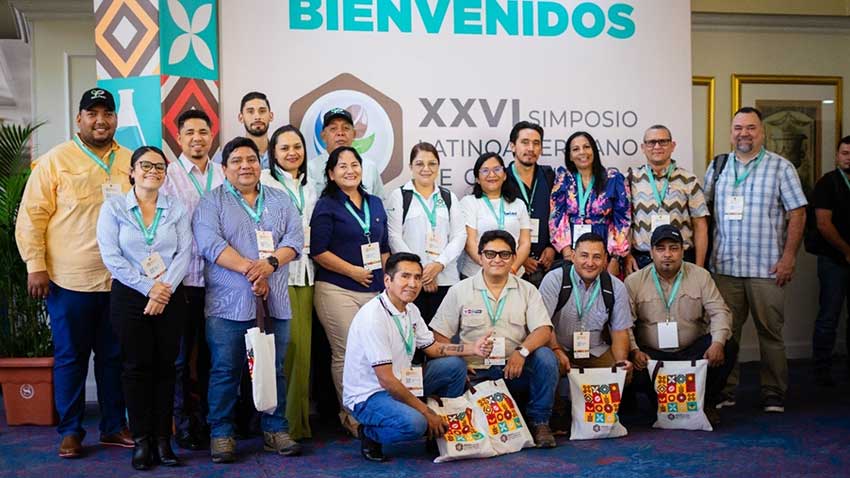
- As coordinator and leader of the project, CATIE promotes knowledge management through the participation of technicians and disseminates the progress of the KoLFACI Coffee Project during the XXVI Latin American Coffee Symposium.
On July 14, the monitoring meeting of the KoLFACI Coffee Project took place in San Salvador, El Salvador. This activity was attended by 34 technical representatives from KoLFACI and the Korea Tea Industry Institute, along with the CATIE team.
This project, funded by the Korean-Latin American Food & Agriculture Cooperation Initiative (KoLFACI) and the Rural Development Administration of the Republic of Korea (RDA), began in January 2024 and is scheduled to conclude in December 2026.
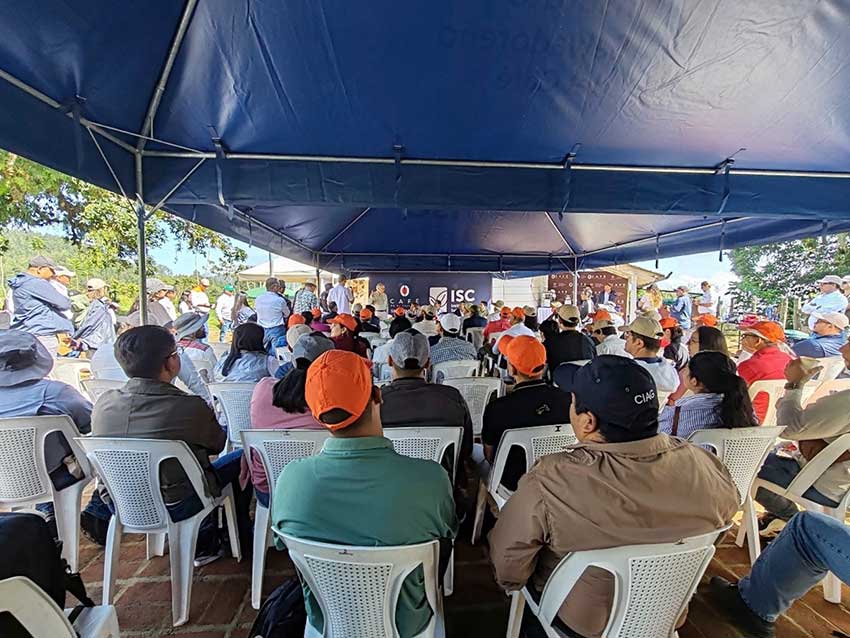
On this occasion, representatives from the 9 participating countries had the opportunity to share progress regarding the evaluation of implemented pruning practices, varieties, and the selection of promising materials for climate adaptation. Representatives from El Salvador, Honduras, Panama, Costa Rica, the Dominican Republic, Guatemala, Nicaragua, Bolivia, and Peru also agreed on important planning aspects for the future implementation of activities for this year. CATIE (Tropical Agricultural Research and Higher Education Center), as the coordinating body and project leader in Latin America, also presented the project’s regional results and achievements.
Projection and field visit
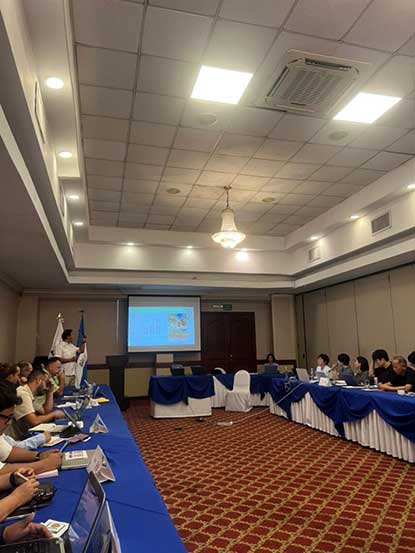
As part of the knowledge management component, from July 15 to 18, CATIE facilitated the participation of 19 technicians involved in the project in the XXVI Latin American Coffee Symposium, including a field trip to Plan del Hoyo Farm, located in the Santa Ana Volcano, Ilamatepec (Apaneca-Ilamatepec Coffee Mountain Range). During the visit, participants learned about coffee production with high yields and excellent beverage quality. Plan del Hoyo Farm implements technology and good agricultural practices aimed at sustainable and socially focused coffee production. It has served as a space for establishing and monitoring research trials, technology validation, and testing of different varieties in cooperation with various institutions and organizations of recognized national and international prestige.
From July 16 to 18, during the Symposium, the technicians attended high-quality presentations delivered by renowned experts from the Latin American region. Over these three days, topics covered ranged from genetics, marketing, gender, pests and diseases, environmental sustainability, to coffee harvesting and post-harvest processes. In addition, five project technicians participated in a panel discussion on the benefits of genetic characterization and types of pruning as drivers of productivity, professional training, and motivation among coffee-producing families in Honduras, Costa Rica, Guatemala, Peru, and the Dominican Republic.
Strategic synergies
The XXVI Latin American Coffee Symposium was supported by the Salvadoran Coffee Institute (ISC), which, together with the PROMECAFE Secretariat, provided a high-quality exchange space not only through presentations but also through poster sessions and an expo fair showcasing products and services related to the coffee sector, including technological innovations.
Both activities have been valuable spaces for strengthening technical capacities, not only for specialists from the 9 countries involved in the KoLFACI Project but also for CATIE’s technical team, which was made up of: Dr. Rolando Cerda, Dr. Elías de Melo, M.Sc. William Solano, Dr. Luis Orozco, M.Sc. Daniel Fernandez, M.Sc. Chelsia Moraes, as well as Dr. Luc Villain and Dr. Timothee Cheriere from CIRAD/CATIE.
More information:
Chelsia Moraes
Researcher
CATIE
cmoraes@catie.ac.cr
Written by:
Esteban Rodríguez Zamora
Communicator
Information Technology and Communication
CATIE
esteban.rodriguez@catie.ac.cr

